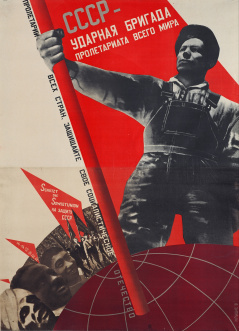Human Rights after 1945
HUMAN RIGHTS AFTER 1945 IN THE SOCIALIST AND POST-SOCIALIST WORLD
German Historical Institute, Warsaw
March 3 – 5, 2016
CONFERENCE SYNOPSIS
 Histories of late twentieth century global change have focused on its perceived winners on a macro-scale: democratic capitalism, global markets and individual rights. In such formulations, the “socialist world” and its history appear irrelevant to understanding global processes and unable to inform liberal Western democratic societies.
Histories of late twentieth century global change have focused on its perceived winners on a macro-scale: democratic capitalism, global markets and individual rights. In such formulations, the “socialist world” and its history appear irrelevant to understanding global processes and unable to inform liberal Western democratic societies.
The global rise of human rights might look like a particularly striking case in point. The formal guarantees of rights in socialist societies, after all, seemed to have no substantial effect on these societies’ political and legal practices, and the debate on civil society in “the West” which east European human rights activists had inspired during the 1980s, did not survive socialism’s fall in that region.
In this conference, we want to question those narratives. Actors from the socialist world – be they state officials, loyal intellectuals or dissident activists – actively participated in international conflicts over the meaning of democracy, economic freedom, religious liberty and national self-determination in the post-war period. Socialist officials took part in drafting the U.N. covenants of 1966, in turning South African apartheid or repression in Chile into global causes célèbres or in promoting women’s rights. African socialists shaped human rights discourses by blending them with the struggle for self-determination, while Latin American activists grafted human rights to their Marxist ideas. Chinese Communists joined traditional ideas of cultural difference with Leninist ideology to create a distinct human rights discourse. Dissident intellectuals, on the other hand, did not necessarily take the West’s side in the Cold War when they criticized socialist realities, but developed innovative human rights vernaculars deeply shaped by their unique contexts. In sum, the “socialist world” did not just react passively to Western human rights politics, but was a vital participant in the story of the production of global human rights.
This conference seeks to explore how the socialist world can be written into the broader global narratives of the rise of human rights in the 20th century, and even revise these narratives. Our understanding of the “socialist world” is deliberately inclusive. It entails the socialist systems of eastern Europe, Eurasia, Africa, Southern and East Asia as well as socialist and Communist parties and movements more broadly, and anti-colonial or anti-dictatorial movements in the Global South.
CONFERENCE PROGRAMME AND REPORT
Call for Papers (CLOSED)
This event was kindly supported by the German Historical Institute in Warsaw and the Leverhulme Trust-funded project 1989 after 1989: Rethinking the Fall of State Socialism in Global Perspective at the University of Exeter.
[Top]





